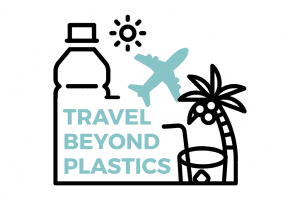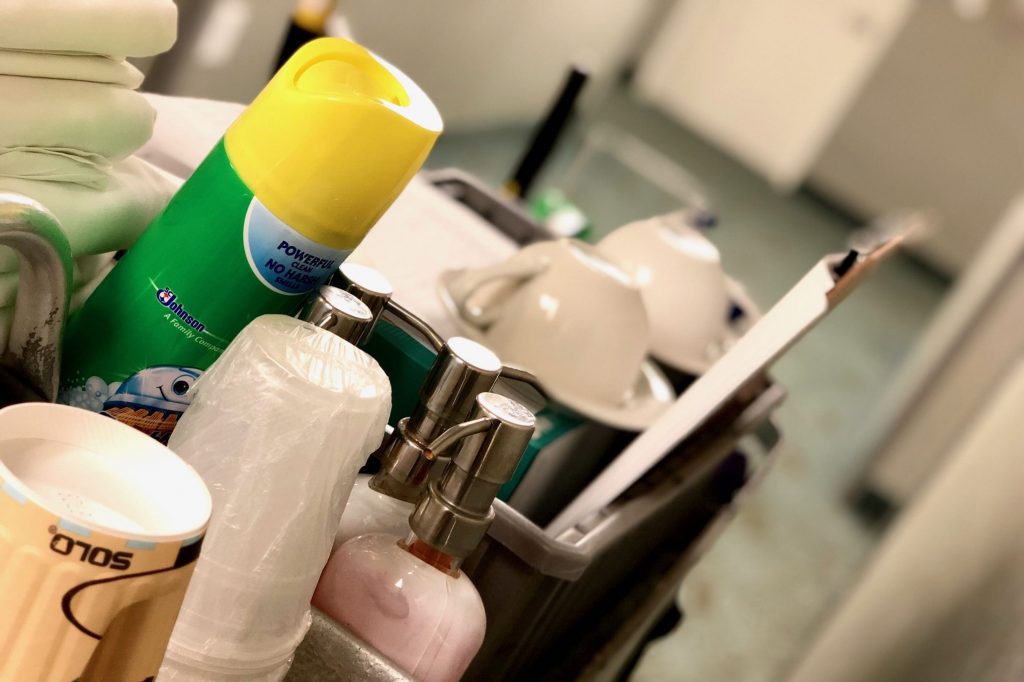Skift Take
It's one thing for a hotel to join a coalition and promise to reduce its plastic footprint, and another to make measurable progress.
 Travel Beyond Plastics is a groundbreaking new Skift series about the travel industry’s addiction to plastics and what happens when companies and travelers try to kick this unsustainable habit.
Travel Beyond Plastics is a groundbreaking new Skift series about the travel industry’s addiction to plastics and what happens when companies and travelers try to kick this unsustainable habit.
Hoteliers are increasingly aware that their plastic waste contributes to an enormous environmental problem, and there’s an obvious first step to take: Promise to do better.
A hotel can simply set its own goals and issue a press release, or it can join some type of larger coalition, commitment, alliance, or pledge that includes other companies. Among the simplest and most common elements of such a pledge are eliminating plastic straws and water bottles, referred to as “low-hanging fruit” by Dianna Cohen, CEO of Plastic Pollution Coalition. On the more difficult end of the spectrum is reducing back-of-house plastics that come in from suppliers.
Such steps are addressed in pledges like the New Plastics Economy Global Commitment, launched in 2018 by the Ellen MacArthur Foundation in collaboration with UN Environment. This is among the broadest such efforts with signatories encompassing 20 percent of all plastic packaging produced globally.
New Plastics Economy targets include eliminating problematic or unnecessary plastic packaging; moving from single-use to reusable packaging; ensuring that 100 percent of plastic packaging can be easily and safely reused, recycled, or composted by 2025; and promoting a circular economy for plastic, which involves increasing the amount of reuse and recycling. You’ll see similar language from organizations like Plastic Pollution Coalition, Alliance to End Plastic Waste, and NextWave.
None of these commitments are truly binding. Sometimes pledging companies are required to publish data on their progress, but company-produced data can be deeply flawed. Many hotels are unable to accurately measure their plastic use — which is not tracked routinely by utility companies or third parties, and is therefore harder to measure than water or energy. If hotels don’t start with reliable numbers on consumption, or any numbers at all, their targets may be iffy from the start.
New Plastics Economy signatories include a lone hotel company, Hong Kong-based Melco. While the commitment is non-binding, it pushes companies to evaluate their progress alongside a credible institution like the Ellen MacArthur Foundation, according to Melco’s chief sustainability officer Denise Chen. “It gives a great platform for us to learn from each other and to take a leadership position within our industry.”
“The numbers in the commitment are indeed self-reported,” said Rob Opsomer, systemic initiatives lead at the Ellen MacArthur Foundation. However, companies that fail to meet certain requirements will see some type of consequence.
“If a company fails to report its progress, it can be removed from the global commitment immediately,” said Opsomer. On the other hand, if the company is engaged and reporting its progress, but is struggling to meet some benchmarks, there is some leeway to remain part of the commitment.
“You cannot just make a pledge and walk away,” said Opsomer, who added that now is the right time in terms of global awareness to push for plastic waste reduction. “If we had tried to get similar levels of ambition even three years ago, it wouldn’t have been possible.”
“We don’t have a lot of hospitality companies [in the commitment]. We call the entire industry to join in,” said Opsomer. The Ellen MacArthur Foundation seems to take its half of the relationship seriously, but for some participating companies, these non-binding pledges can mean very little.
Corporate spokespeople for Melia Hotels International, one of few hotel companies listed on the Plastic Pollution Coalition site as having joined the coalition, said it was unaware of its joining. Cohen said that companies listed on the coalition page did indeed join, but may not have taken any further steps. Melia declined to issue another response.
“We’re not certifying businesses, so we don’t hold them accountable in terms of how they map certain benchmarks,” said Cohen, adding that these companies are nonetheless “working in a strategic way to reduce their plastic footprint.”
Among the most useful aspects of these non-binding pledges is the insinuation that companies should examine their back-of-house plastic waste involved in food shipments, cleaning supplies, and other operations, which is arguably the most difficult part of this sustainability journey.
Legislation seems to be more effective at pushing companies in the right direction, but the downside is that governments can move very slowly. The EU ban on certain single-use plastics, slated for 2021, is one of the more extensive bans issued by a government, but is still far from an eradication of single-use plastic. It focuses on key areas like cutlery, plates, cotton buds, straws, and stirrers, much of which hotels are already eliminating. But now some are on the fast track, like Edition Hotels, which reported expediting some of their initiatives in response to the EU ban.
“With legislation it’s a very slow process,” said Chen. “I don’t think legislation at this stage can move as quickly to be able to deal with the issues that we face currently on the environmental sustainability front.”
Have a confidential tip for Skift? Get in touch
Tags: climate change, melia hotels international, plastics, travel beyond plastics
Photo credit: A cleaning cart with sustainable and non-sustainable materials at the Port-O-Call hotel in Ocean City, New Jersey in 2019. Skift
